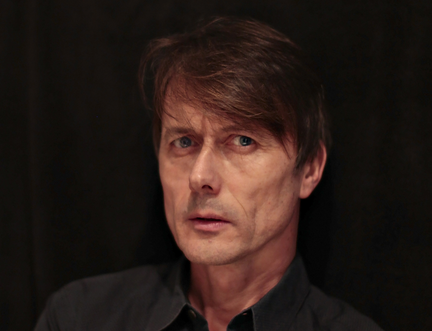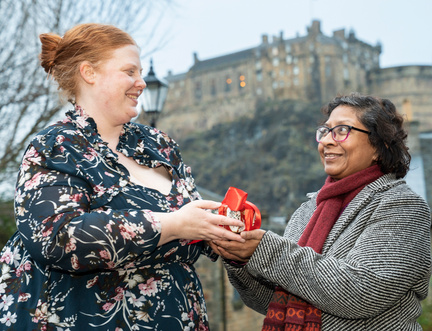More articles Sunday 26 August 2018 1:00pm
Brett Anderson’s ‘overt femininity’ was his way of dealing with the loss of very strong women in his life

The “overt femininity” that characterised Brett Anderson's appearance during the early success of alternative rock band Suede was his way of dealing with grief, the singer-songwriter said during a discssion of his memoir Coal Black Mornings at the Book Festival last night.
“Looking back, the kind of overt femininity I developed after [girlfriend] Justine Frischmann had left, and my mother had died, was my trying to assimilate and deal with the loss of these very strong feminine people in my life,” he said. “It’s the only reason I can give for it. I think people sort of assumed that it was some sort of 1970s homage, or some sort of fake-gay thing; but I don’t think it was. Obviously I was aware I was playing with sexual imagery. I was aware it was titillating, but the level I went to, I think, was an assimilation of grief.”
In a famous quote from the time, Anderson described himself as being “a bisexual man who’s never had a homosexual experience”, words which he now insists were taken out of context. “I was talking about how I approach songwriting; about how, when writing songs, I often look at myself in the third person. ‘My Insatiable One’ is a song about me, from Justine’s point of view. I’d write from the point of view of a housewife, or gay men—people on the fringes of acceptance at the time, people with whom I thought I had empathy.”
Parenthood has changed him, but so has the death of his father. “When my father died, it started a whole train of thought about him; it’s the whole thing of you don’t know what you’ve got until it’s gone,” he said. Now I really regret not sitting down with him and listening to him and asking him questions about his past. So I thought I would leave this document about myself for my boy, so if – when – he ends up reading it… well, the fact is that it’s there, waiting, if he wants it.”
Would he encourage his son, currently six years old, to follow in his footsteps? “Well, I think it’s important that you allow your children to try and do something that makes them happy, but I’d be very worried for them if they did decide to go into music as a career,” he admitted. “I wouldn’t ever advise it, I wouldn’t ever usher them into music. These days, the way music is going, if you’re a new band, it’s very hard to make a living making interesting left-field music. Marginal music is precisely the music that can’t support itself any more.
“I think there’s long-term consequences for the music industry,” he said. “I’ve a theory that the music industry is like an eco-system; marginal left-field bands that are almost like the plant life. In the same way that, if the plant life goes, the carnivores will eventually die out, I think the different strata of the music industry are linked; if you take out one of those links, it can mean the death of the whole thing.”
- 2025 Festival:
- 9-24 August
Latest News
 Communities Programme participants celebrate success of 2024
Communities Programme participants celebrate success of 2024



